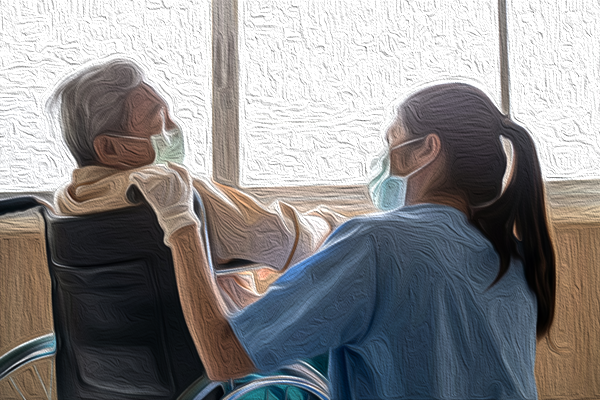|
RCBJ-Audible (Listen For Free)
|
Claims Focus On Atmosphere Of Inequality During Coronavirus Pandemic
LEGAL NEWS
By Tina Traster
Four current and former employees of United Hospice Inc. have filed a suit alleging race discrimination, a hostile work environment, and retaliation in violation of state and federal law.
Many of their claims focus on an atmosphere of inequality that played out in stark relief during the coronavirus pandemic. The suit was filed Dec. 21st in United States District Court Southern District of New York in White Plains against United Hospice, a not-for-profit corporation, CEO Cara Danielle Pace and Director of Clinical Services Judith Peacock.
The four plaintiffs, three of whom are Hispanic, and one who is Black, are alleging that there is a pattern of discrimination that has put the health and safety of minority employees at risk during the COVID-19 pandemic. The suit says that “while many white employees have been allowed to work remotely during the pandemic, Hispanic and Black employees have been required to engage face-to-face with patients and their families – including those who are infected or exhibiting symptoms of COVID-19 infections – even when services could be provided remotely.”
In their suit, plaintiffs Elizabeth Alvarado, Ericka Aguilar, Wanda Azu Nieves and Marie Wood Smith, allege United Hospice’s work force is starkly segregated with all-white upper management, spiritual advisors except for one and nurses.
In contrast, most of the social workers who travel to community homes and patient care settings are Hispanic, and all of the home health care aides are Black or Hispanic, the suit says.
The suit says claims that while many white employees have been allowed to work remotely during the pandemic, Hispanic and Black employees have been required to engage face-to-face with patients and their families, even when services could be provided remotely.
In March, after the COVID-19 virus forced Gov. Andrew Cuomo to lock down New York, Dr. David Chmielewski, United Hospice’s medical director, recommended limiting in-person visits with patients’ families. He advised that staff should “not make routine visits to patients’ homes. He advised that in-person visits should be “rare and need-based.” He recommended conducting initial assessments by phone. He warned that staff would not be 100 percent protected from infection even with personal protective equipment (PPE).
Based on the director’s advice, many white employees stopped providing in-person care, the suit says. The suit also claims Chmielewski, who is white, stopped providing in-person care, as did the spiritual advisors, nurses, and Peacock.
But Hispanic workers were treated differently, the suit alleges.
Defendants Pace and Peacock “pressured Hispanic social workers and their Hispanic supervisor to increase the number of in-person visits with patients and their families, including in their homes.”
Defendants Pace and Peacock, the suit says, demanded Hispanic social workers complete at least four face-to-face encounters with patients and their families daily.
Seeking to limit exposure from the virus, plaintiff Nieves says she presented United Hospice with a physician’s note that said she faced heightened risk of contracting COVID-19 due to a compromised immune system. The plaintiff claims United Hospice “refused to engage in a meaningful dialogue” concerning her request for an accommodation. The suit says Nieves was offered PPE but was expected to continue making face-to-face visits.
Plaintiff Nieves complains Hispanic social workers were not being fit-tested for N-95 masks, and that training for use of PPE required them to share a single gown during training, “passing it from one person to another.” Nieves says unequal treatment of Hispanic social workers put them at increased risk of life-threatening infections during the height of the pandemic.
The lawsuit spans beyond COVID-related behavior.
The plaintiffs also allege unfair patterns of compensation, treatment, and retaliation. The suit alleges that Pace and Peacock “regularly demean and humiliate Hispanic and Black employees in the workplace and deny them the same terms and conditions of employment as their white co-workers.” The plaintiffs say the defendants berated them publicly. They allege that white employees have shown lax practices in mask-wearing while they face higher standards. They allege they are not paid for increased caseloads in contrast to their white co-workers.
The suit seeks both compensatory and punitive damages, a permanent injunction prohibiting further discrimination or retaliation, and attorney’s fees.
Wood Smith has resigned after 11 years with United Hospice.
United Hospice, located in New City, offers end-of-life care, including health care, residential care, bereavement services and education for patients and families. The non-profit also runs the Joe Raso Hospice Residence (JRHR).
Pace did not return calls seeking comment.
The plaintiffs are represented by The Howley Law Firm P.C. of New York City.











